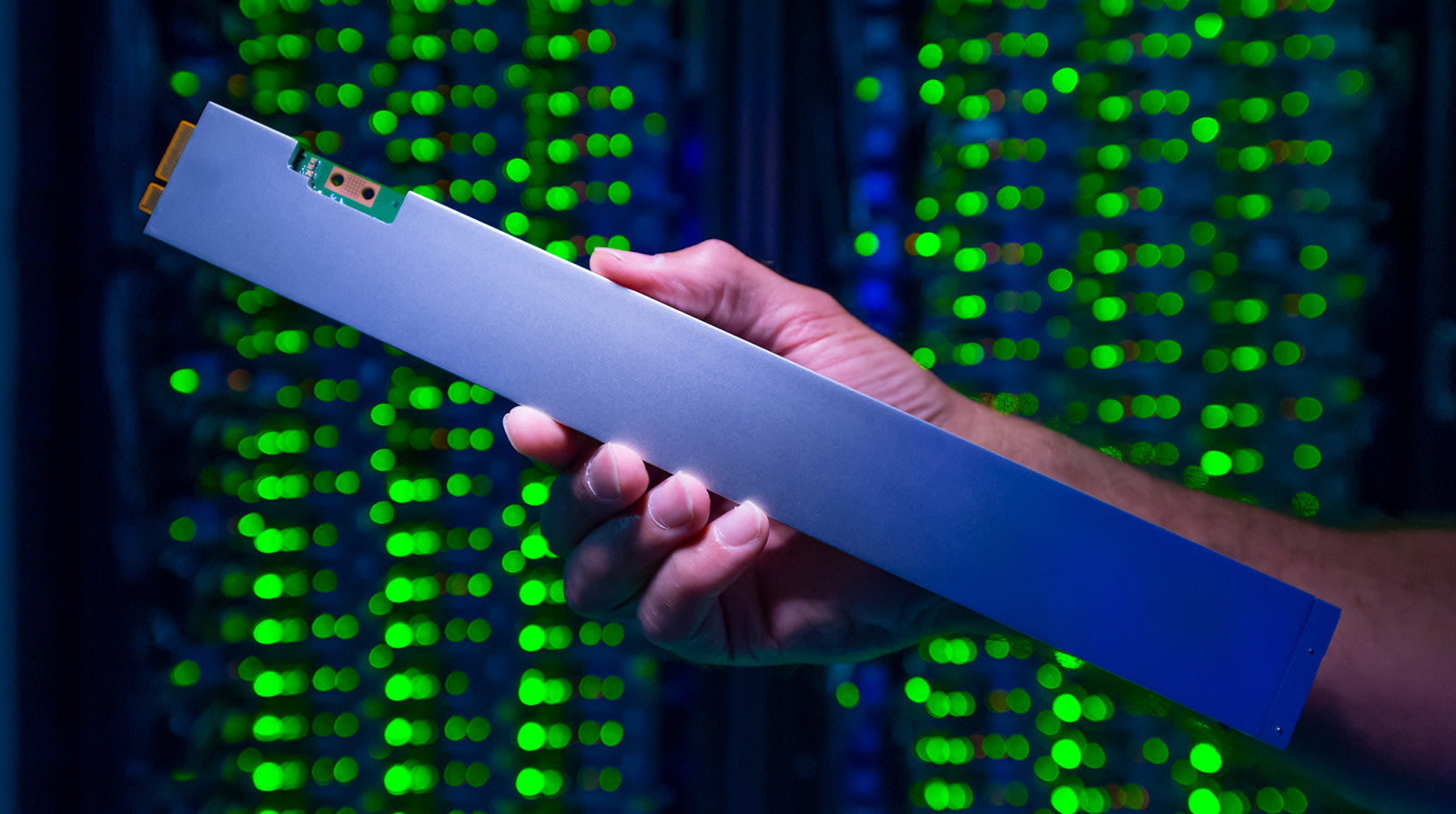Originally posted by Michael
View Post
Announcement
Collapse
No announcement yet.
Intel SSD 660p: 512GB Of NVMe Storage For $99 USD
Collapse
X
-
A concern, of course. Also the drive writes per 512GB (100, i.e., 1 TB drive can survive 200 full drive writes) is very low compared to Intel's TLC.Originally posted by nadro View PostPerformance of this SSD is terrible when there is no much free space left on the disk.
Still, how many TB have you written as a consumer to an SSD in your life? Additionally, the SLC cache might mask some of this, if the SLC cache also only migrates to QLC after a period of inactivity, then heavy dynamic work might stay in SLC cache area.
What I'd l'd like is long-term, write-once data (videos, photos, static game data, and so on) to be on QLC, but dynamic and high-performance-required data to stay in the SLC portion (hell, why not have an MLC/TLC portion if capacity is an issue?). It seems that the technology is going that way - Intel's not the only one to put SLC areas on a TLC/QLC drive, the dynamic aspect is promising.
Comment
-
My PSU, GPU and CPU create enough BTU's as it is. Not using magnetic hard drives lowers internal temps and reduces the need for yet more fans.
I only use large magnetics for archival or retention purposes, many times in a off box NAS to separate it from the thermal domain of the desktop.
FWIW: Intel also shipped their first ruler based storage this week.
32Tb in a single "ruler". Dell, HP or Lenovo are reportedly working on their own high density storage format.

Comment
-
Who are you arguing with? I never claimed SSD's don't perform better. I said at current pricing, they aren't worth the cost for larger data volumes like mine. Ever priced out 16 TB of enterprise grade SSD?Originally posted by perpetually high View PostI think the performance gains from SSDs speaks for itself.
Yes, and likewise a quad socket Xeon Platinum 8180 ($40,000+ just for the chips) doesn't seem so silly for your average consumer either. You know, once we remove price from the equation.Originally posted by perpetually high View PostIf we remove money from the equation, an upgrade doesn't seem so silly.Last edited by torsionbar28; 10 August 2018, 01:57 PM.
- Likes 3
Comment
-
My post explicitly references desktops. Not laptops. Either way, I don't care how many seconds a PC takes to boot, and I certainly won't pay extra for a few seconds of boot time. I reboot maybe once every two months, boot time is not relevant to me.Originally posted by Vistaus View PostMy laptop boots in 7 seconds with an SSD, so 7 seconds vs 16 seconds is a major difference. Maybe not major enough for you, but definitely more than the 4 second difference you mentioned.
- Likes 1
Comment
-
Calm down, no one is arguing. I agree with what you're saying.Originally posted by torsionbar28 View PostWho are you arguing with? I never claimed SSD's don't perform better. I said at current pricing, they aren't worth the cost for larger data volumes like mine. Ever priced out 16 TB of enterprise grade SSD?
You don't care, but lots of us who run desktops care.Originally posted by torsionbar28 View PostMy post explicitly references desktops. Not laptops. Either way, I don't care how many seconds a PC takes to boot, and I certainly won't pay extra for a few seconds of boot time. I reboot maybe once every two months, boot time is not relevant to me.
That's what I thought was silly. Carry on.Originally posted by torsionbar28 View PostWhy do you think that? Using an SSD for a boot/OS disk is kind of silly.
Comment
-
I get what you mean, but the 860 EVO is outperforming the 840 PRO pretty decently. TLC is showing to be formidable in performance (longevity will be with MLC for now) so I'd say tech is getting better if I was able to replace a PRO for an EVO (granted the 840 PRO is 6 years old now, but still).Originally posted by zxy_thf View Post
Flash drives may be the only product that you'll get worse ones with more advanced techs.
Samsung has a 5 year/300 TBW for the 500GB version of this drive I picked up, not bad honestly. Took me 4 years to upgrade from my 840 PRO, and even then it was to help my dad out as I really had no reason to upgrade minus doubling the size, which alone is a pretty big deal.
Comment
-
Pretty sure endurance/longevity is what he's talking about. Performance will continue to increase, but TBW is getting worse, at least on many consumer products. I have a pile of some old intel X25-E ssd's at work. They're SLC. Only 64 GB in size, but with 1 Petabyte of endurance. It's remarkable how many write cycles those SLC chips can endure compared with the cheapo TLC being churned out today.Originally posted by perpetually high View PostI get what you mean, but the 860 EVO is outperforming the 840 PRO pretty decently. TLC is showing to be formidable in performance (longevity will be with MLC for now) so I'd say tech is getting better if I was able to replace a PRO for an EVO (granted the 840 PRO is 6 years old now, but still).
Interestingly, the URE rate on those X25-E's is somewhat low though, not sure why, it's only 1 in 10^15. Doesn't much matter when you RAID though.Last edited by torsionbar28; 10 August 2018, 03:04 PM.
Comment

Comment